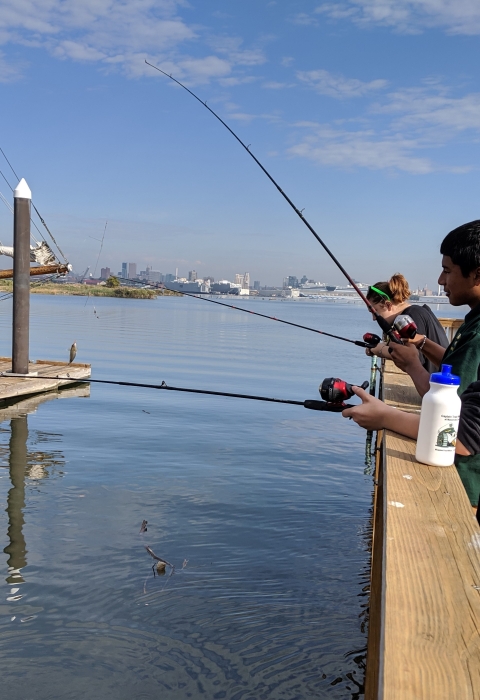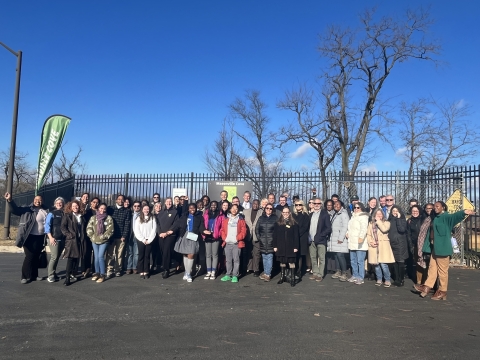BALTIMORE -- U.S. Fish and Wildlife Service Director Martha Williams today joined partners and other leaders at Baltimore’s Masonville Cove — the Service’s first Urban Wildlife Refuge Partnership site — to celebrate a decade of the Service’s Urban Wildlife Conservation Program.
Since 2013, the Program has improved lives by expanding access to green space, education and outdoor recreation for Americans living in and around cities. The program was created to prioritize conservation and recreational access in urban areas, home to more than 80% of Americans.
“Our Urban Wildlife Conservation Program is a response to a 21st-century problem — with the vast majority of Americans living in highly urbanized areas, we need to provide access to the green spaces people need for mental and physical well-being,” said Williams. “Partnerships like the one at Masonville Cove are creating a modern conservation legacy that will ultimately inspire new generations to become stewards of their environment.”
Program members work to clear social and historical barriers and foster new connections that advance conservation and strengthen communities. This model includes improving access to green spaces, restoring and connecting wildlife habitat, improving resiliency to the effects of climate change climate change
Climate change includes both global warming driven by human-induced emissions of greenhouse gases and the resulting large-scale shifts in weather patterns. Though there have been previous periods of climatic change, since the mid-20th century humans have had an unprecedented impact on Earth's climate system and caused change on a global scale.
Learn more about climate change , and providing community recreation and education.
The Masonville Cove Environmental Education Center campus is nestled within an industrial area on the Middle Branch of the Patapsco River, adjacent to the nearby communities of Brooklyn, Curtis Bay and Cherry Hill. It’s known for environmental education programs and world-class outdoor recreational and stewardship experiences.
Since its designation, Masonville Cove Urban Wildlife Refuge Partnership has become a leader in urban conservation, collaborating with community-based organizations, government agencies and other institutions to connect residents with nature and wildlife, while enhancing the social and economic vitality of Baltimore communities.
Members include the Service’s Chesapeake Bay Field Office and Patuxent Research Refuge, Maryland Department of Transportation Maryland Port Administration, Maryland Environmental Services, the National Aquarium, Living Classrooms Foundation, and a variety of community groups, including Masonville Citizens Advisory Committee, the Greater Baybrook Alliance, and Baltimore Green Space.
Masonville Cove is one of 32 urban wildlife refuge partnerships across the country, including Cincinnati, Houston, New Haven, New Orleans, Philadelphia, Phoenix and Seattle.
During a year that highlighted the 50th anniversary of the Endangered Species Act, Masonville Cove exemplifies the important role urban greenspaces play in conserving species like the bald eagle and the tricolored bat, a candidate for protection as endangered.
For more information on the U.S. Fish and Wildlife Service’s work toward building long-term, meaningful relationships with urban communities through conservation, visit https://www.fws.gov/program/urban-wildlife-conservation.




